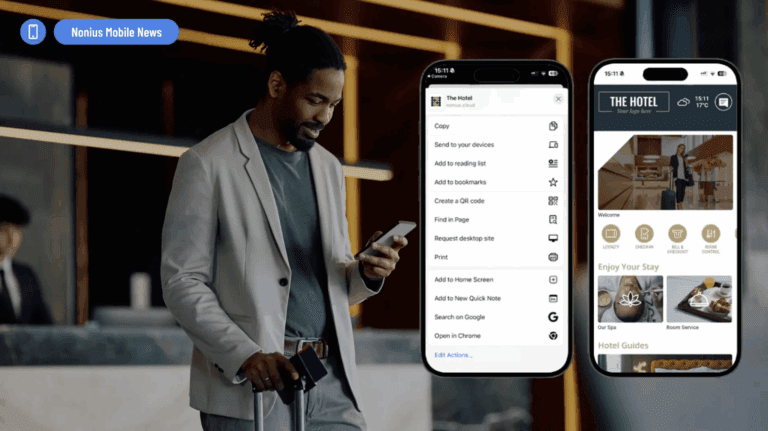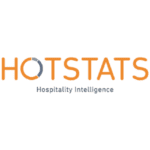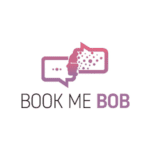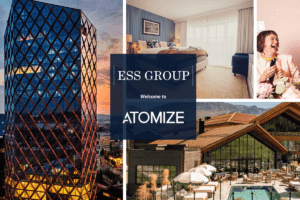
In the fast-paced world of hospitality, hotels are constantly seeking ways to enhance guest experiences. One crucial aspect that often gets overlooked is the pre-arrival phase.
A pre-arrival plan that fosters two-way engagement serves as the foundation for creating a memorable stay, building strong relationships with guests, and enhancing their overall satisfaction.
Hotels can make sure their guests feel valued and have a smooth, enjoyable stay from the moment they walk through the doors.
Why is it Important to Create a Pre-Arrival Plan?
While many hotels believe that their services begin once the guests arrive at the reception desk, they fail to realise the importance of pre-stay in the whole guest journey.
Research shows that when 80% of brands think that they are delivering an excellent experience, only 8% of customers feel the same way. It’s time to step up the game.
By attending to guests’ needs and preferences before they even step foot in the hotel, you can lay the foundation for a positive experience. This proactive approach not only leads to improved guest satisfaction but also cultivates guest loyalty, ensuring repeat business in the future. And that is what everyone wants to accomplish in the end.
Moreover, it also allows hotels to upsell, and cross-sell additional services or amenities based on the guests’ preferences and interests.
According to SiteMinder’s Traveller Report 2023, travellers will not stop going on short and long trips, meaning the demand will only grow. Hence, it’s crucial to be ready to deliver a memorable guest experience now more than ever before.
Here are four best practices for you to create a pre-arrival plan that will keep your guests coming back.
Understanding guest expectations before arrival
To create a truly personalised pre-arrival experience, hoteliers need to have a thorough understanding of their guests’ expectations.
One way to understand your guests is through a hotel CRM. Despite the common misconception that CRM systems only serve as marketing tools, they offer much more.
Having a CRM integrated to your Property Management System (PMS), enables you to store all the accurate data at one place, including contact information, preferences, booking records, and past interactions.
This alone is not the only thing that holds the power. The best part is what you can do with the data. You can extract insights based on your guests’ preferences, past purchases and feedback, allowing you to understand what they expect from an accommodation.
For example, if you notice one of your guests has made a reservation from a far away place, you can offer them parking lot service before they arrive, in case they need it.
Having access to accurate guest details and information provides you with the advantage to predict what the guests truly want, allowing you to craft an engagement plan to maximise satisfaction.
Don’t miss out this article: How to use data to power strategic decision-making in a hotel
Personalise pre-arrival experiences
One size does not fit all when it comes to guest experiences. According to research, many guests feel disconnected with the hotel, especially during pre-arrival.
Hoteliers should try to create personalised pre-arrival experiences that actually resonate with individual guests. This can be achieved through a combination of pre-arrival surveys, targeted multi-channel campaigns, and other forms of communications.
Many hoteliers have expressed frustration over the challenge of creating a personalised engagement plan with limited resources – an email address. However, the key is to never be afraid of communicating with your guests before they arrive.
Whether it’s through the reservation system, online booking platform, or later during their stay, don’t hesitate to capture their preferences. For instance, if two people have made a reservation together, ask them what their trip is for. If it’s for business, you could let them know that there are big monitors and meeting rooms available, the hotel wifi is great, and the coffee is on the house! While a bottle of wine would probably be a better gift for a couple on their anniversary.
In addition, from personalised welcome messages and tailored room amenities to customised itineraries and recommendations, every stage of the guest journey can be fine-tuned to create a sense of exclusivity and personal attention.
This fosters two-way communication between the hotel and its guests, allowing for a better understanding of their preferences and needs. Moreover, personalisation can create valuable memories and make the guests remember you, so they would return next time.
Learn more about how a CRM can help you to personalise your hotel marketing in this article.
Maintain regular communication
Consistent and timely communication is the cornerstone of a successful pre-arrival plan. Hoteliers should establish a clear and open line of communication with guests to ensure that any questions, concerns, or special requests are promptly addressed.
First, you need to find out how your guests want to be communicated with, whether it be through email, SMS, or even WhatsApp. By asking guests their preferred channel of communication, you can ensure that they expect to receive messages from that specific channel.
Second, the frequency of communication is also very important. Depending on your property size and amenities, decide on an appropriate cadence to communicate with your guests. Be careful of not sending too many things, the key to avoid this is always asking: Does this add value to the guest?
Third, always remember to personalise your communication. Instead of bombarding guests with a single email containing numerous options, focus on providing targeted information or offers through multiple emails. This approach allows you to cater to the specific needs of guests more effectively.
By regularly engaging with guests, you not only demonstrate your commitment to their satisfaction but also create opportunities for them to express their needs and preferences.
Read about 9 tips to structure your pre-arrival communication.
Leverage social media and review platforms
Social media and review platforms play a significant role in today’s hotel industry. Encourage guests to engage with your hotel through these platforms even before their arrival.
Create exclusive hashtags for guests to use when sharing their excitement about their upcoming stay. You can also showcase positive reviews and guest experiences on your website or social media pages to build anticipation.
This not only boosts your brand image but also encourages two-way communication with guests and demonstrates your commitment to excellent customer service.
If you want to learn more on how your website and social media can help you grow direct bookings, check this article.
What are the best practices to reach OTA guests?
Many hotels have been facing the challenge of reducing bookings from online travel agencies (OTAs). Hotels that rely heavily on OTAs often struggle to establish direct relationships with guests compared to hotels with a higher percentage of direct bookings.
While OTAs may not always provide extensive guest data to hotels, as they do not want hotels reaching out to their users too often, personalization can still be achieved through thoughtful gestures and requesting specific requirements or preferences from guests. This step contributes to a sense of tailored service and leaves a lasting positive impression.
Additionally, a hospitality CRM can help hoteliers to get in touch with OTA bookers and create a profile for each guest today. By utilising real data, hotels are able to analyse guests’ preferences and develop personalised guest journeys. The key is to turn OTA bookers into loyal guests to your hotel and not to the OTAs.
Conclusion
A well-designed pre-arrival plan that promotes two-way engagement can significantly improve the guest experience. By understanding and anticipating guest expectations, personalising their pre-arrival experiences, and maintaining regular communication, you can create an environment that fosters excitement and customer loyalty. Taking the time to get to know your guests and cater to their unique preferences allows you to develop a pre-arrival plan that sets you apart from your competitors.
Through strategic use of technology and a friendly approach, you can turn a simple reservation into an unforgettable journey from the moment guests begin planning their stay, encouraging them to return in the future.
Start to implement these tips today and foster a long-lasting relationship with your guests!
Follow us on Linkedin to stay up to date with the new hospitality trends, and subscribe to our newsletter to get more tips and hacks for hotel marketing and operations.





















